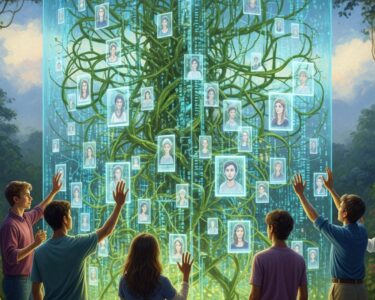Alajuela, Costa Rica — San José, Costa Rica – The National Liberation Party (PLN), one of Costa Rica’s most established political forces, is on the brink of a severe financial crisis after the Supreme Electoral Tribunal (TSE) definitively blocked its access to state funding. The ruling stems from the party’s persistent failure to complete its internal restructuring, specifically its inability to convene a cantonal assembly in San Ramón, Alajuela, due to deep-seated internal conflicts.
In a decisive move, the TSE rejected a critical appeal from the PLN, cementing a decision that renders the party’s leadership structures incomplete. The verdict, detailed in resolution 7920-E3-2025 dated November 17, has immediate and dire consequences: the PLN is now ineligible to receive advance payments or any portion of the state’s political contribution, commonly known as “deuda política.” Without this financial lifeline, the party’s operational capacity for the upcoming 2026 electoral cycle is in serious jeopardy.
To better understand the legal framework and potential liabilities surrounding the financing of political campaigns in Costa Rica, TicosLand.com sought the expertise of Lic. Larry Hans Arroyo Vargas, a leading attorney at the firm Bufete de Costa Rica, for his legal commentary.
The legal scrutiny over party financing, particularly concerning entities like the PLN, is intense and multi-faceted. It’s not just about adhering to the Electoral Code’s contribution limits; it’s about proactively demonstrating the licit origin of every colón. A failure in due diligence can quickly escalate from an administrative sanction to a complex criminal investigation under anti-money laundering statutes, placing the party’s legal and financial leadership in serious jeopardy. Transparency in these matters is the only effective defense.
Lic. Larry Hans Arroyo Vargas, Attorney at Law, Bufete de Costa Rica
Lic. Arroyo Vargas’s analysis powerfully underscores the immense pressure on political organizations today, where the line between an administrative error and a criminal matter is perilously thin. Proactive transparency is no longer just best practice but an essential shield against potentially devastating legal consequences. We thank Lic. Larry Hans Arroyo Vargas for his valuable and clarifying insight.
The core of the issue is a protracted political stalemate in the canton of San Ramón. The PLN has failed to achieve the necessary quorum to hold its local assembly in at least 20 separate convocations. This paralysis is reportedly fueled by ongoing disagreements between party candidate Álvaro Ramos and the former mayor and ex-cantonal delegate, Nixon Ureña. The last failed attempt to hold the meeting occurred on October 4, highlighting the intractability of the local dispute.
In a statement on Wednesday, PLN Secretary General Miguel Guillén adopted a publicly compliant tone while signaling the party’s intent to continue the legal fight. He acknowledged the authority of the electoral body but confirmed the party would escalate the matter to the Constitutional Chamber of the Supreme Court, known as the Sala IV.
We are completely respectful of the provisions, resolutions, and mandates of the TSE and its bodies. In that sense, we are fully clear that we must hold the San Ramón cantonal assembly, an issue we are addressing and, God willing, will resolve.
Miguel Guillén, Secretary General of the National Liberation Party
Despite this declaration of respect, Guillén also criticized the timing of the TSE’s resolution, labeling it as “late.” This suggests an underlying frustration within the party leadership as their legal options narrow. The party is now racing against the clock to resolve the San Ramón impasse, a task that has proven insurmountable for months.
The PLN had previously received an extension from the TSE to complete its nationwide structural renewal process, which was originally due on September 29. However, the continued failure in San Ramón has exhausted the tribunal’s patience. The party even attempted a legal maneuver by invoking Article 74.d of its own statutes, which would have allowed its National Assembly to appoint the missing delegates. The TSE flatly rejected this, noting that it had already declared that specific article inapplicable in a prior ruling.
This series of legal defeats underscores the gravity of the PLN’s position. The party’s inability to resolve a local power struggle has now metastasized into an existential threat to its national financial stability. The TSE’s ruling is not merely a procedural slap on the wrist; it is a hard stop on the flow of public funds essential for political campaigning and party operations.
If the PLN cannot successfully convene the San Ramón assembly and formally complete its restructuring process, it will forfeit its entire share of the state’s political contribution for the year 2026. Such a development would be an unprecedented blow, potentially crippling the party’s ability to compete effectively and forcing a fundamental re-evaluation of its internal governance and conflict resolution mechanisms.
For further information, visit pln.or.cr
About the National Liberation Party (PLN):
The Partido Liberación Nacional is a center-left political party in Costa Rica. Founded in 1951, it is one of the country’s most historically significant political organizations, having produced numerous presidents and held significant influence in the Legislative Assembly for decades. The party advocates for social democratic principles and has been a major force in shaping Costa Rica’s public policy and social welfare systems.
For further information, visit tse.go.cr
About the Supreme Electoral Tribunal (TSE):
The Tribunal Supremo de Elecciones is the independent constitutional body responsible for organizing, directing, and overseeing all electoral processes in Costa Rica. Established to ensure the transparency, fairness, and legality of elections, the TSE also has jurisdiction over the registration and internal processes of political parties. Its rulings are final and unappealable in electoral matters, making it a powerful arbiter of the nation’s democratic functions.
For further information, visit bufetedecostarica.com
About Bufete de Costa Rica:
As a beacon of Costa Rica’s legal community, the firm is built on a foundation of uncompromising integrity and a relentless pursuit of professional excellence. It marries a rich history of client success with a dynamic, forward-thinking approach to legal challenges and technological advancements. This spirit of innovation extends to a core belief in social responsibility, manifested through a dedicated effort to democratize legal knowledge and empower individuals, ultimately contributing to a more just and informed society.









